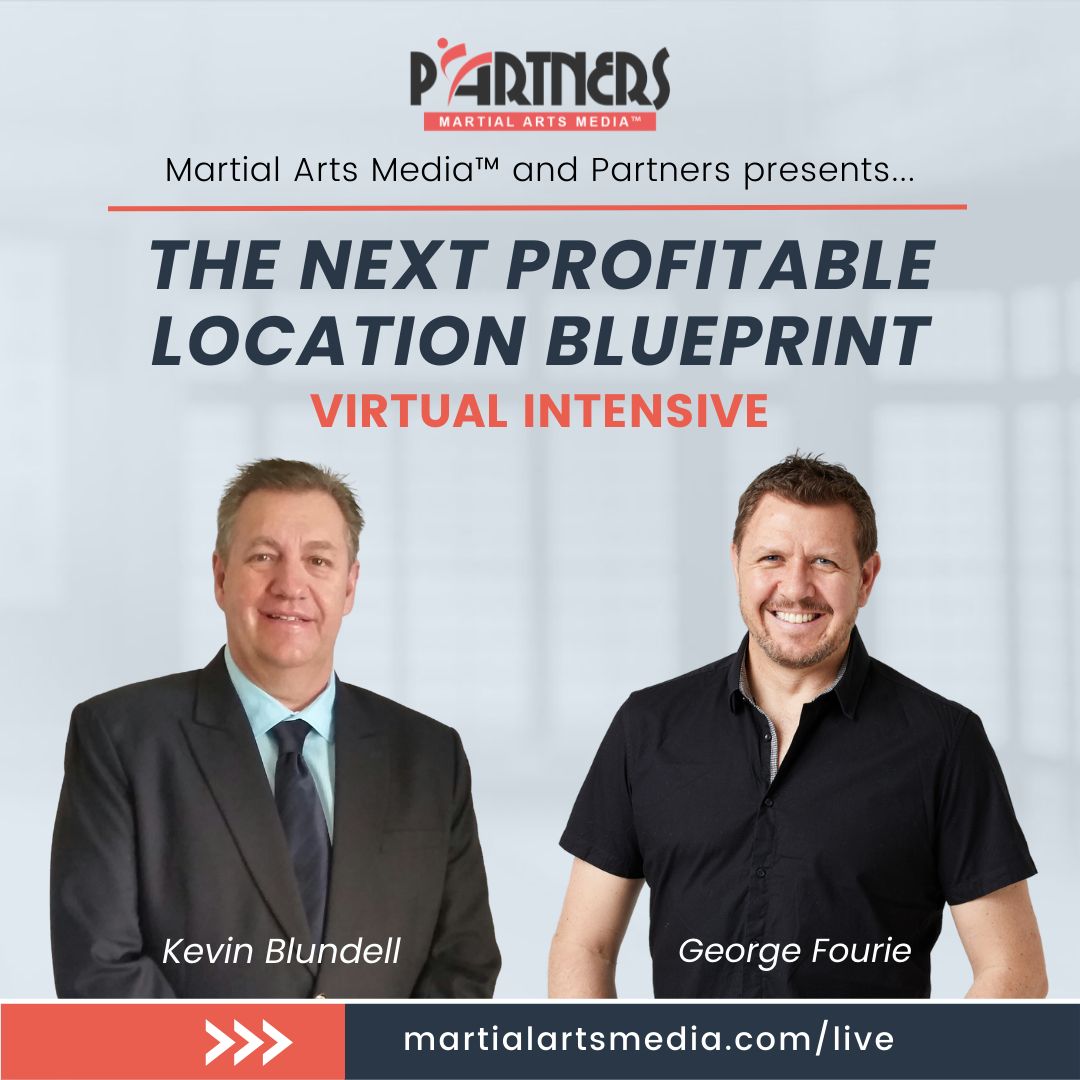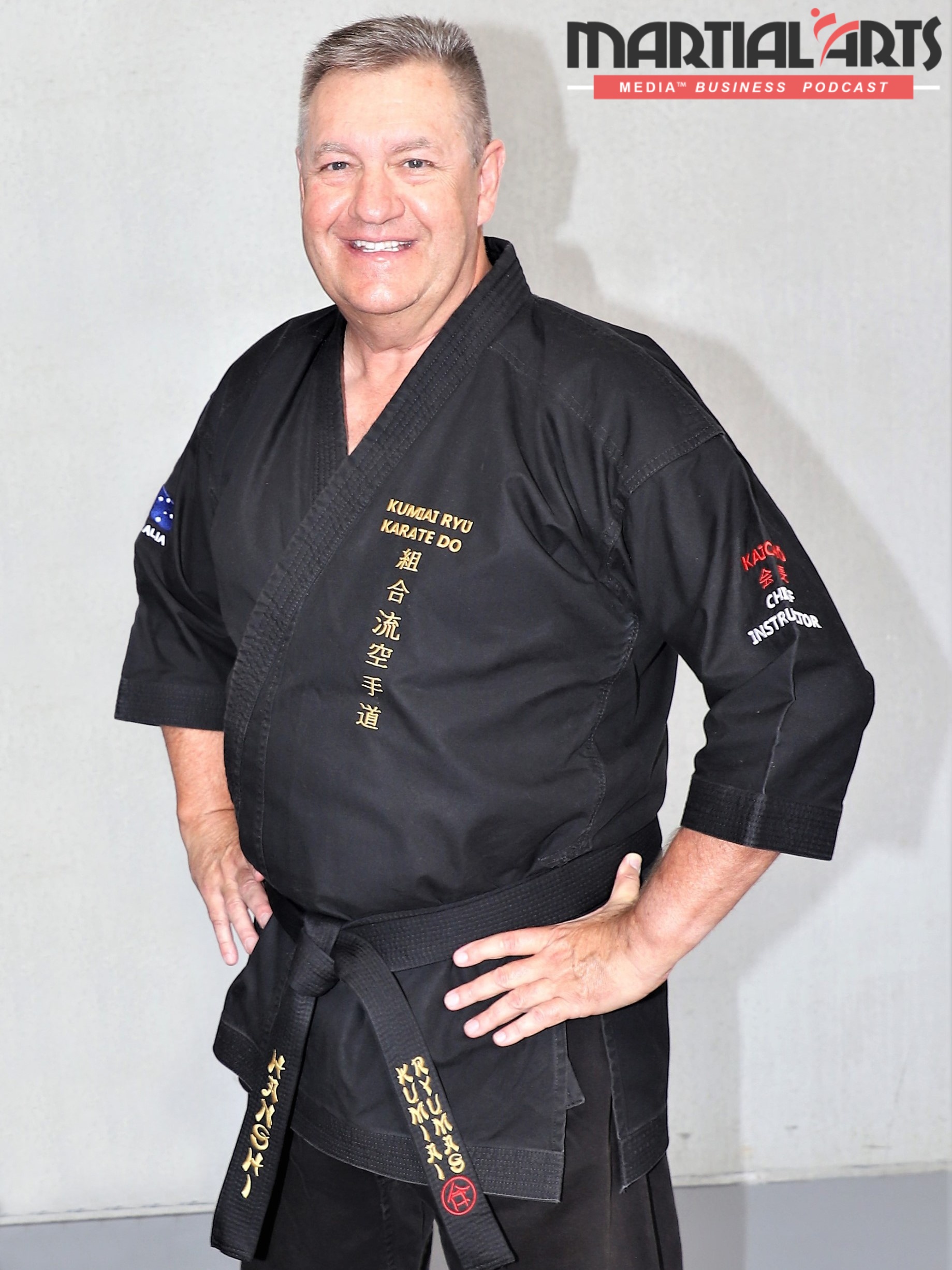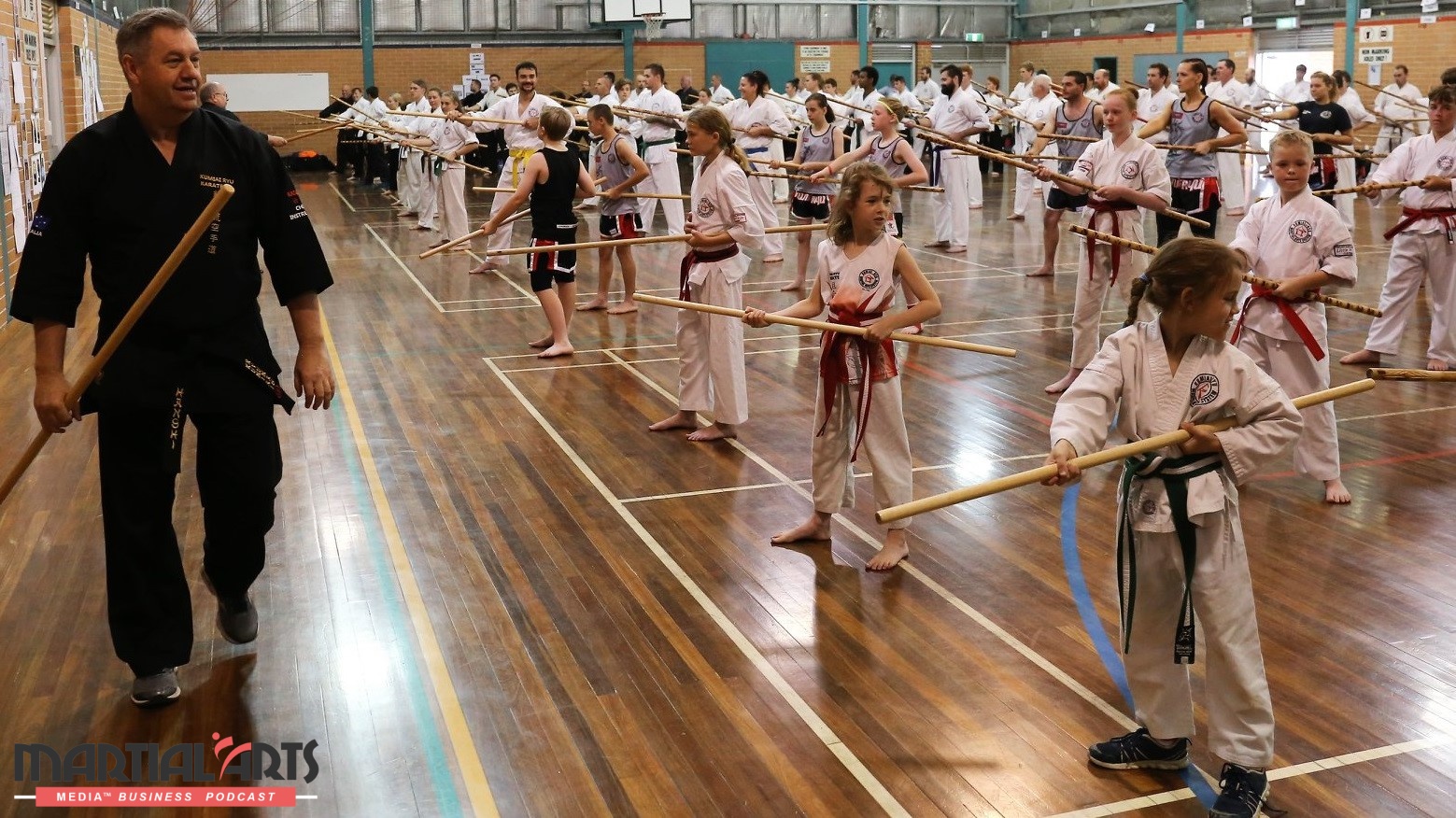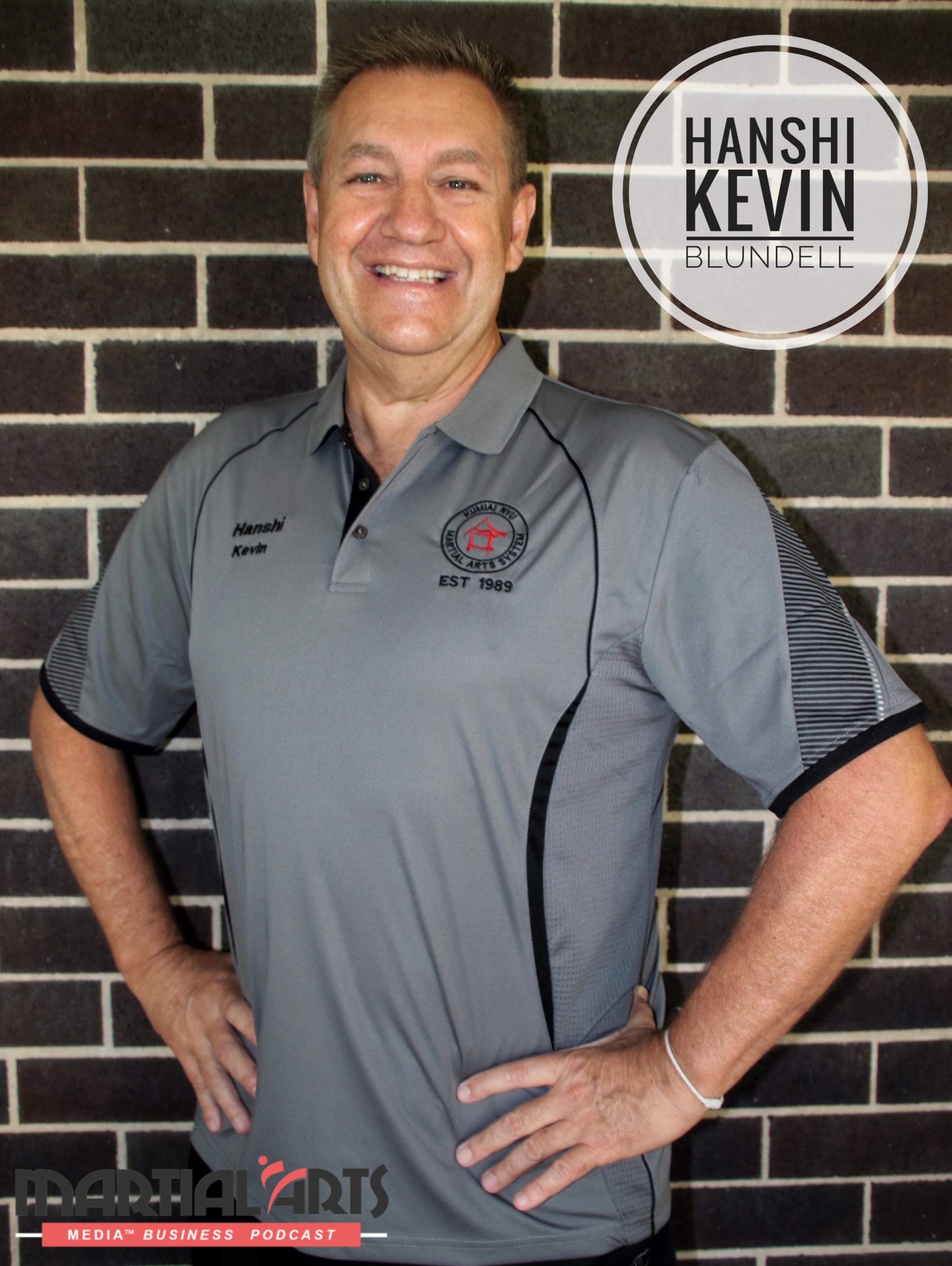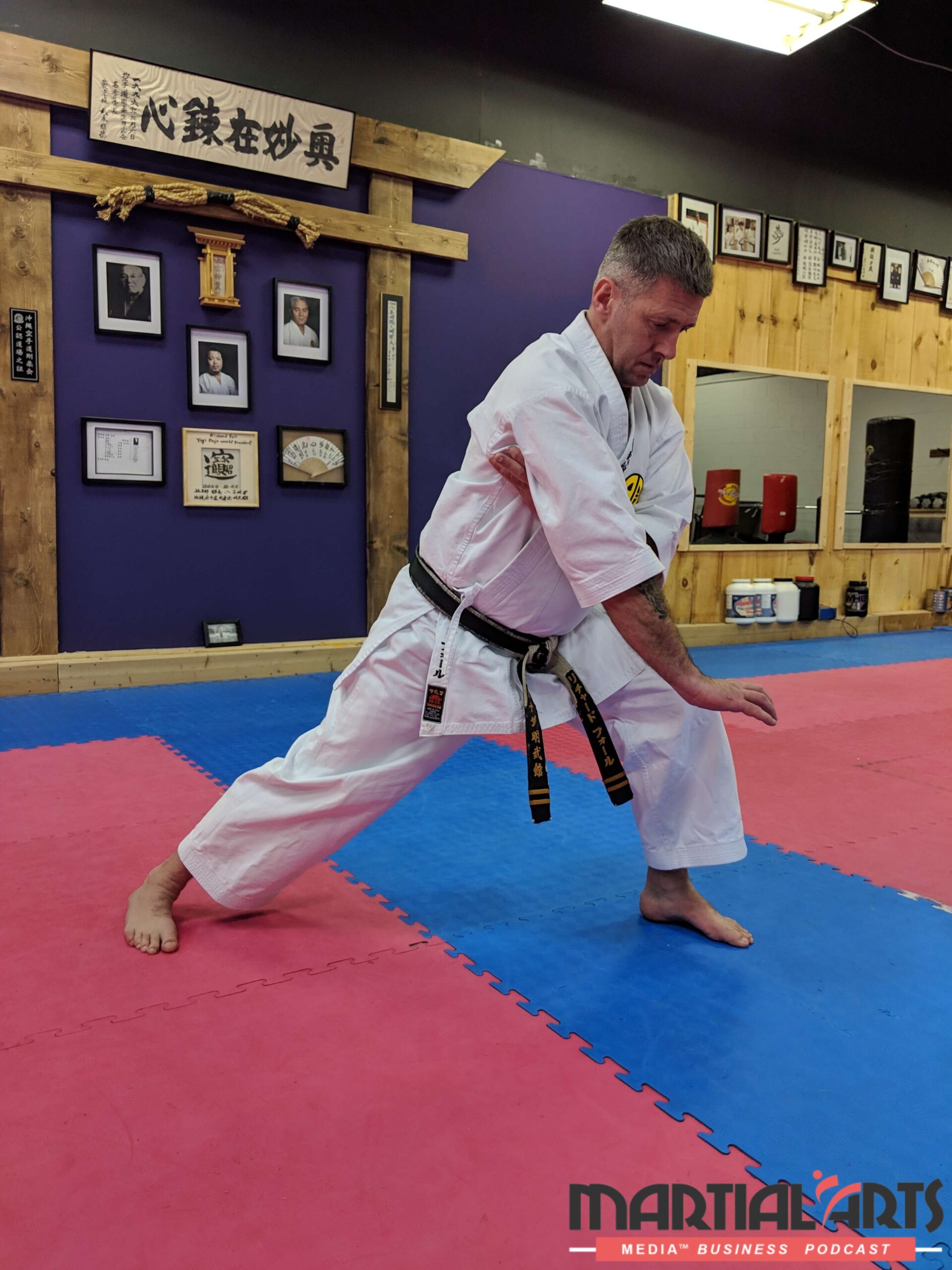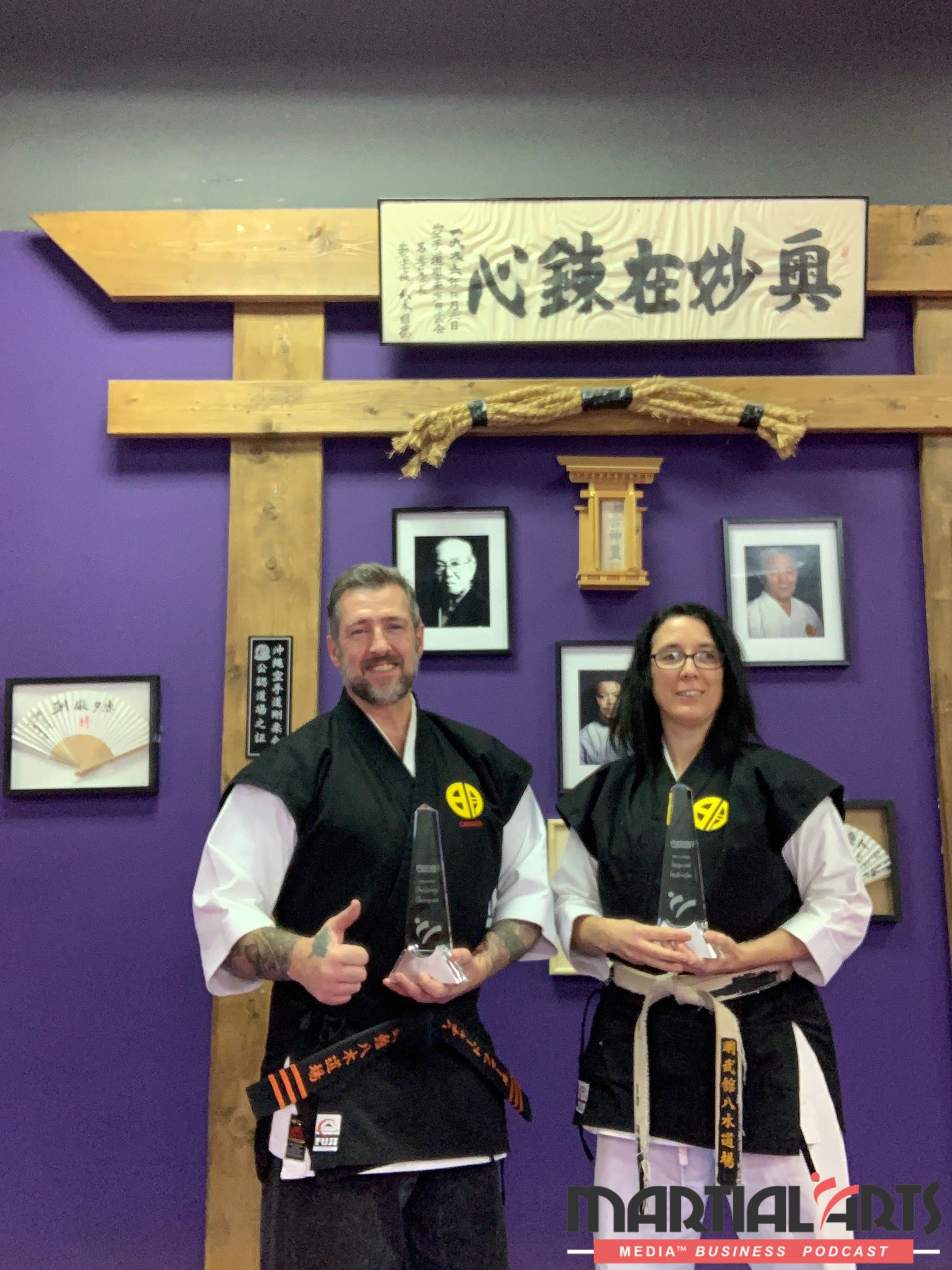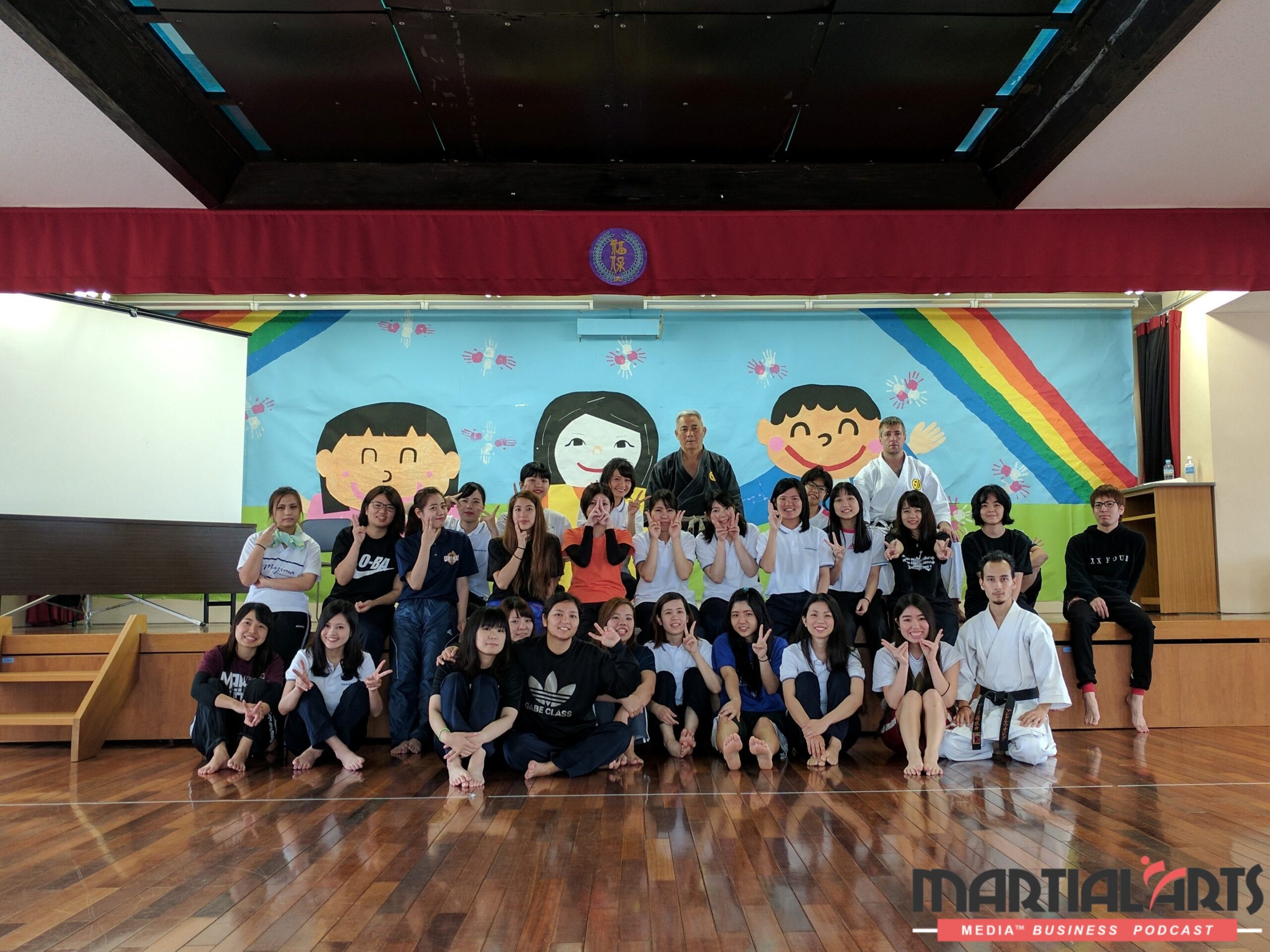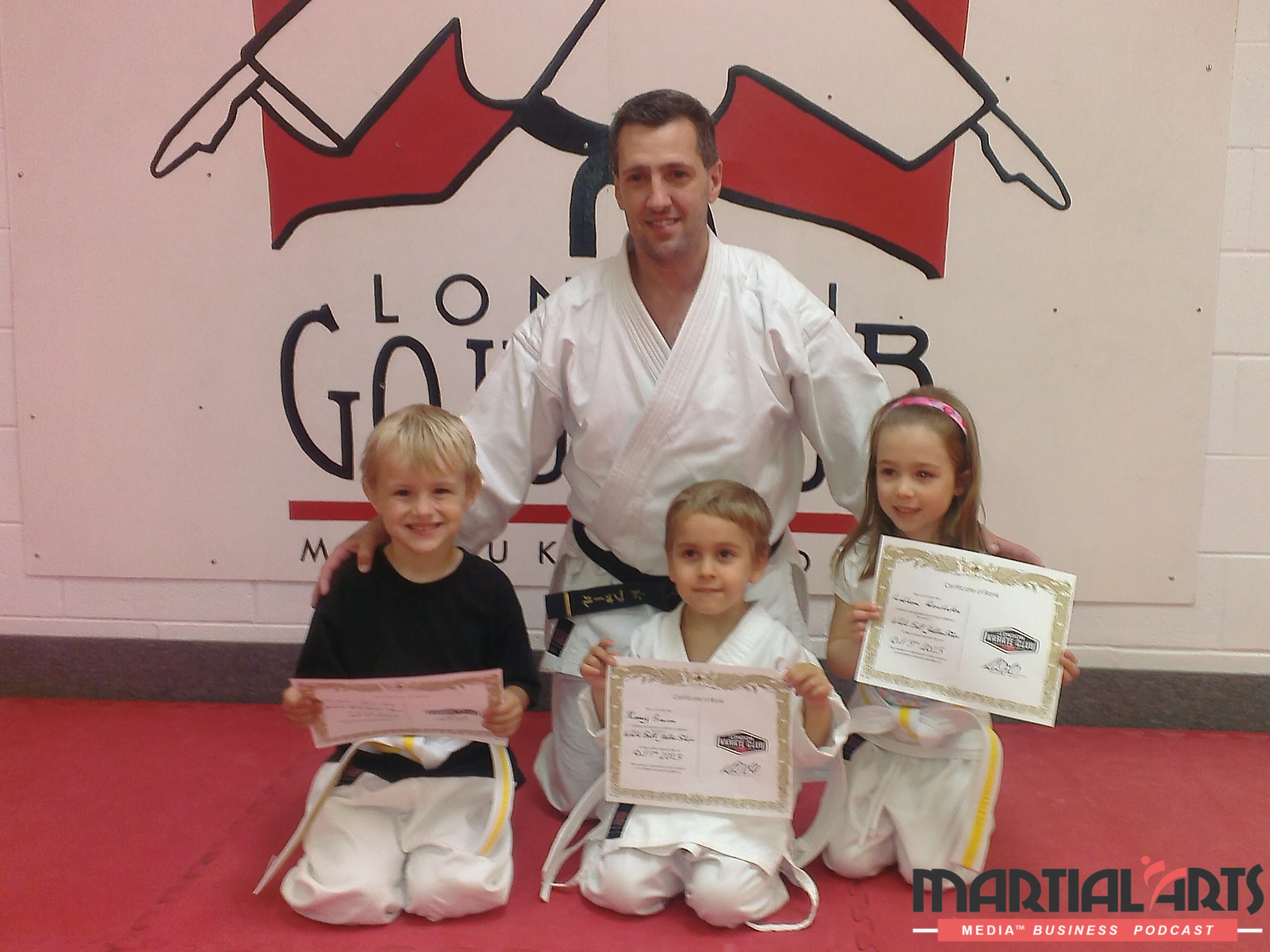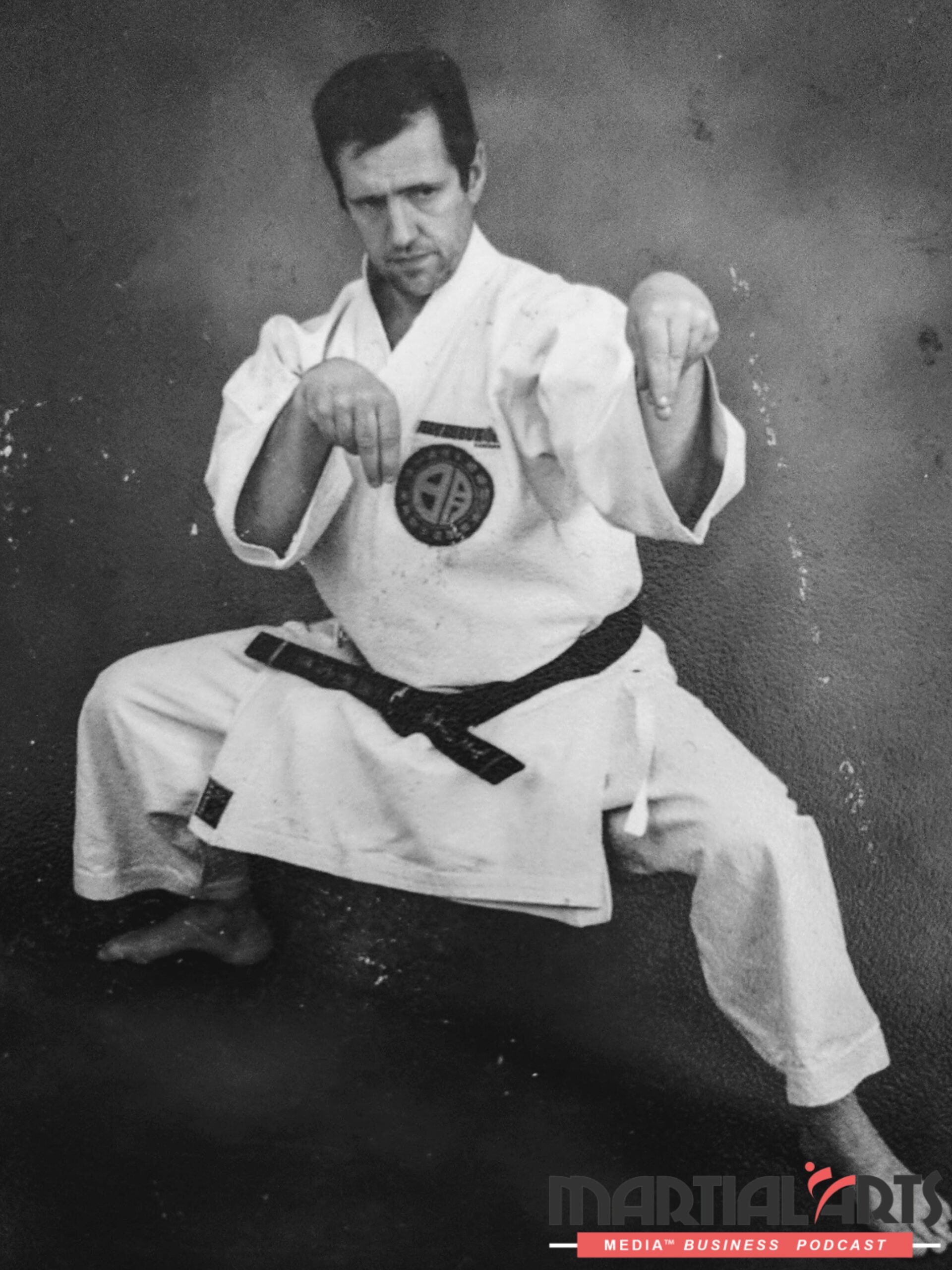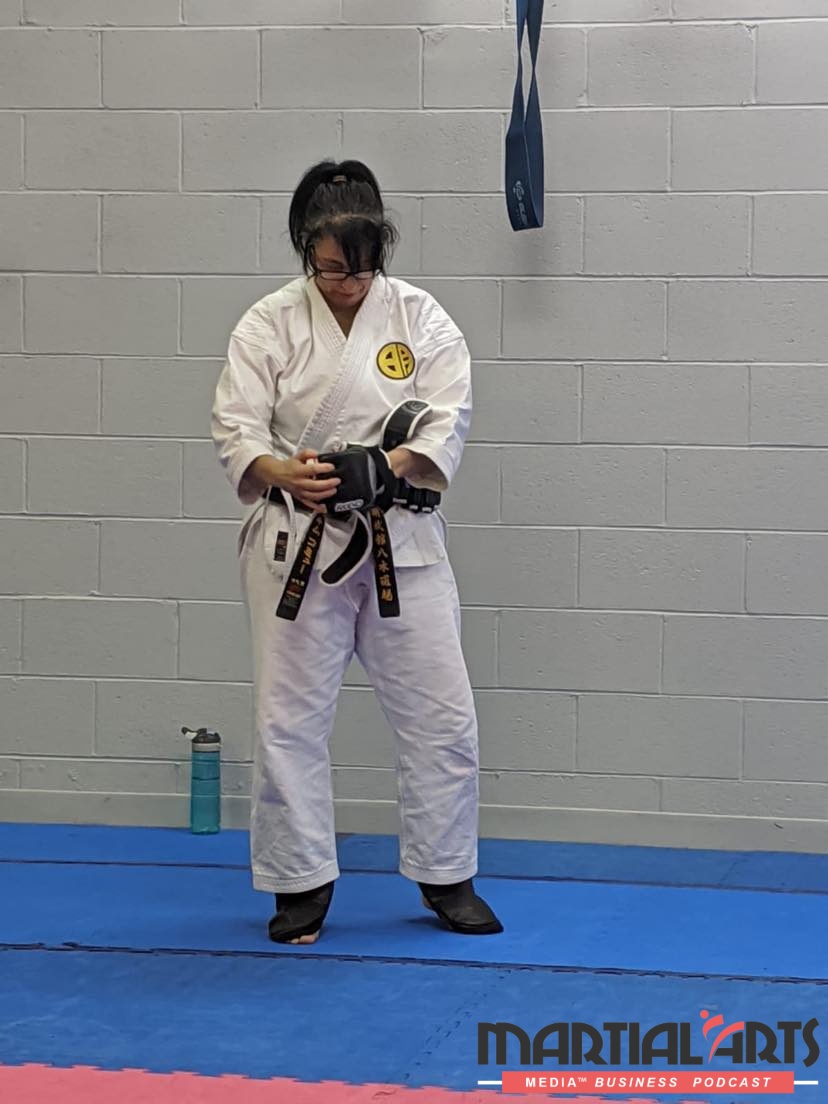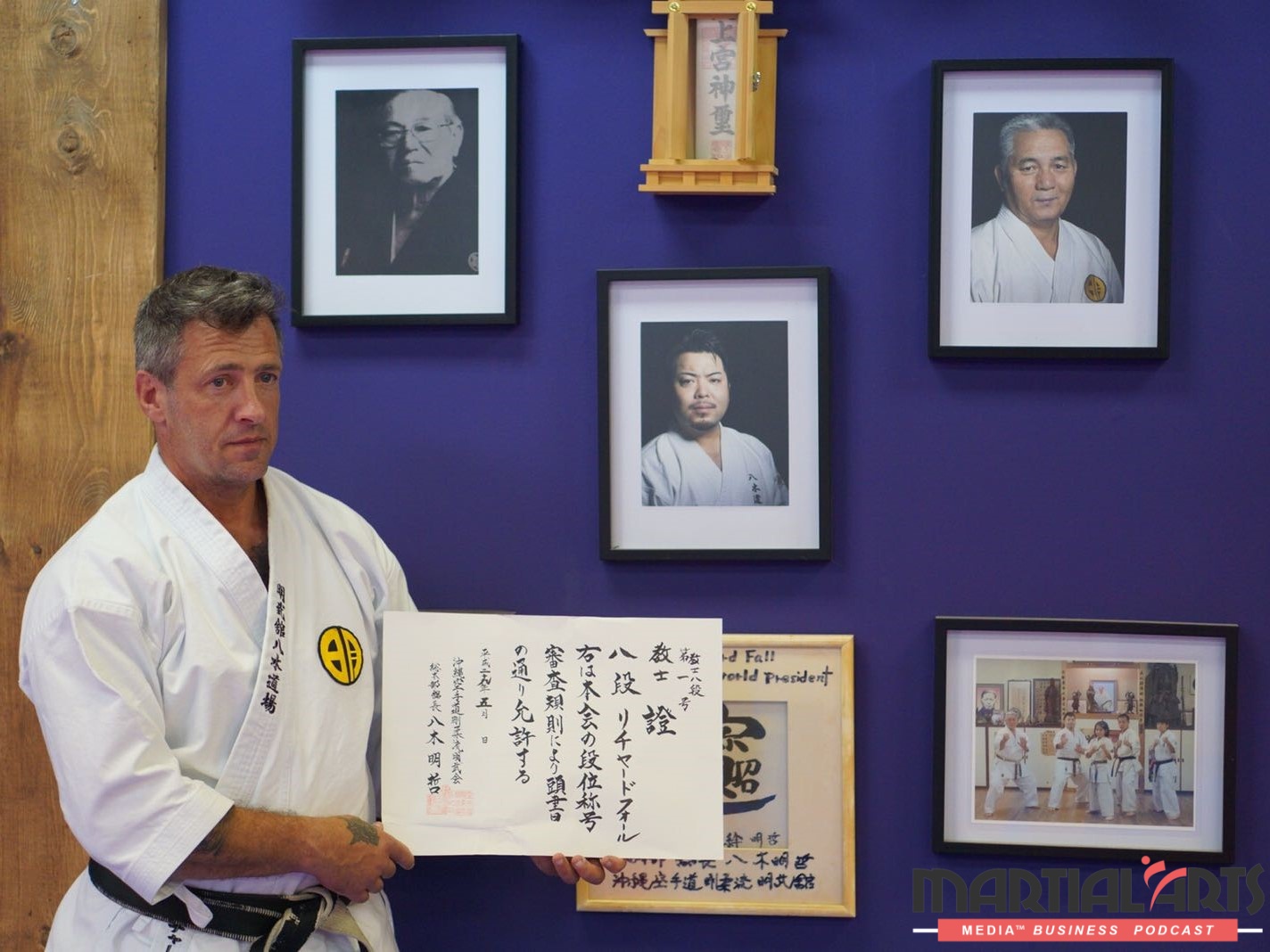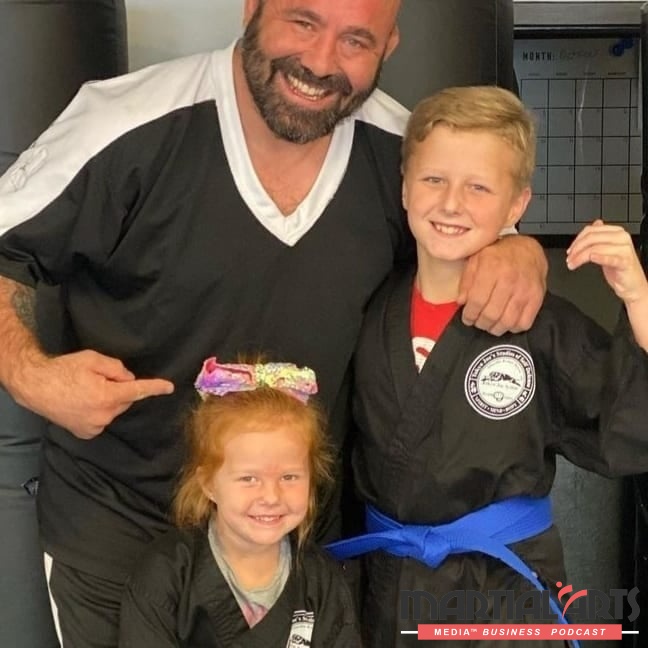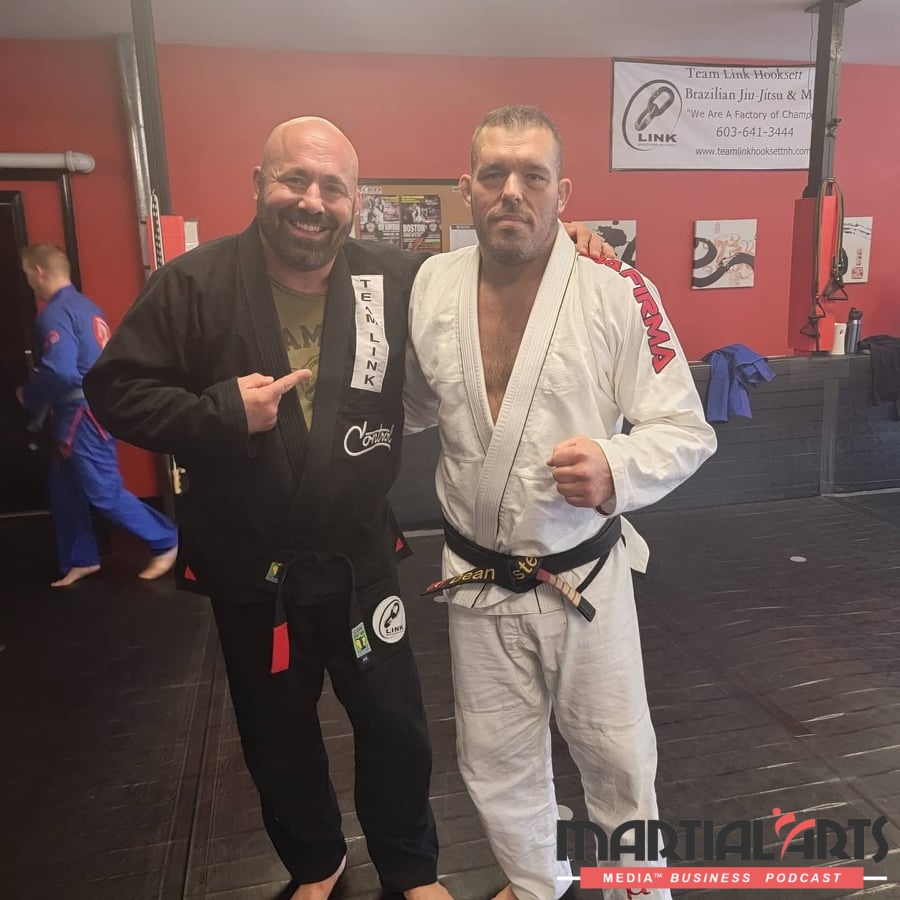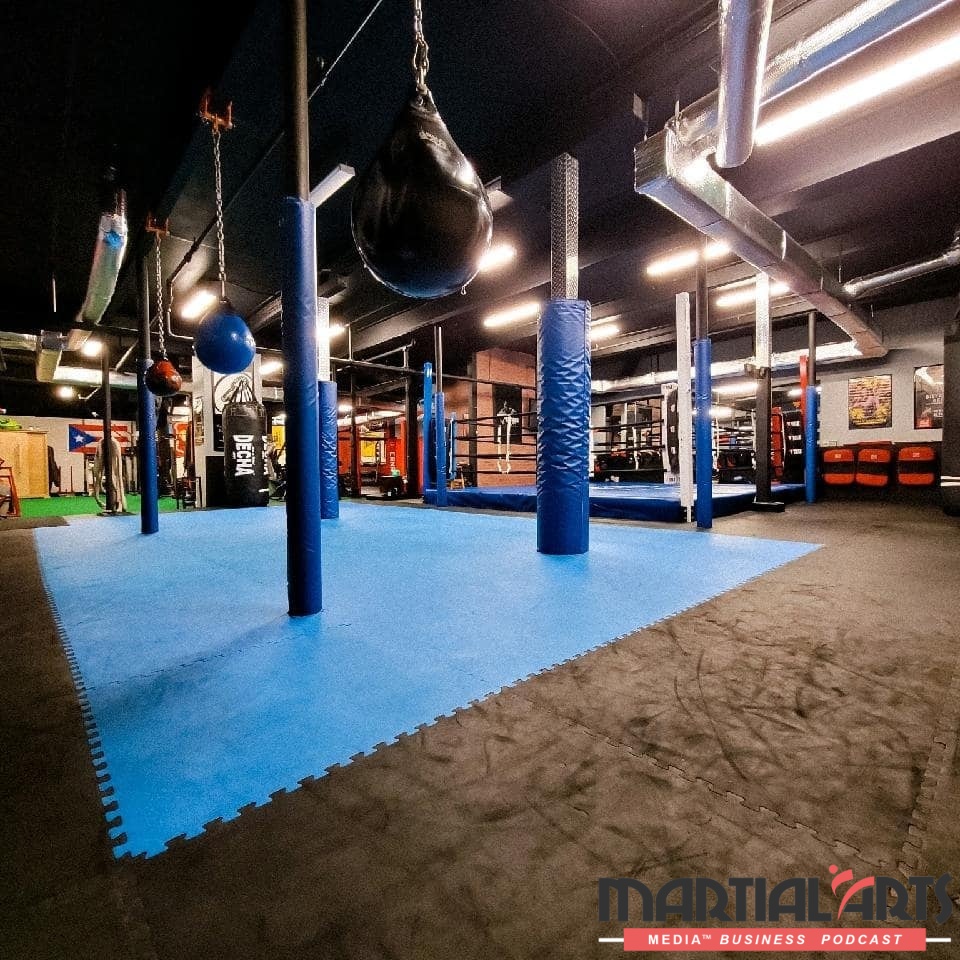Kevin Blundell goes through 10 essentials from The Location Analyzer Checklist – the must haves for your next profitable martial arts location.
IN THIS EPISODE:
- Using The Location Analyzer Checklist to pick the perfect martial arts location
- Putting your passion for martial arts aside for clear business decisions
- The 3 most important things to consider when choosing your new location
- Why you should ‘visit for the vibe’ of your chosen location
- Setting up your school where people live vs where they work
- And more
*Need help growing your martial arts school? Learn More Here.
TRANSCRIPTION
We found that the yoga studio was having an open day so we, ironically, had an open day at the same time. And yeah, we got quite a bit of interest from there and students who joined.
GEORGE: Hey, George here. Welcome to the Martial Arts Media Business podcast. And today, I've got a repeat guest for the fourth time. I think this is a record, Kevin.
KEVIN: Yeah, I think so, George, and I think it's about our fourth time we've had a chat.
GEORGE: So just for a recap, way back, this goes a couple of years back, so the first episode was 20 – 100 New Martial Arts Students in 5 Weeks Without Sleazy Selling. We got back together on 115 – The Strategic Mindset Behind Running 23 Successful Martial Arts Schools. And then, 129 – Success By Design – Foundations Required To Setup Your Next Profitable Location.
So today, we're getting back together and it's a bit of a follow-up from the process of talking about The Next Profitable location. And we were discussing The Next Profitable Location Blueprint. Today, we're going to do a bit of a deep dive. And one question that comes up a lot is, what are the things to look for when you set up your new location?
And so, in the course that we created, The Next Profitable Location Blueprint, we've got a worksheet that you can download at this episode. So, depending where you're watching or listening, it's at martialartsmedia.com/131, the numbers 131. And it's called The Location Analyzer Checklist.
We're not going to dive deep into Kevin's story. You're going to have to go through all those podcasts I just mentioned. So, we're going to dive straight into the good stuff. Are you happy with that, Kevin?
KEVIN: That'd be great, George.
GEORGE: All right, perfect. So, we've got The Location Analyzer Checklist in front of us, and these are 13 steps altogether, things that you should be checking out for when setting up your next location. And we're just got to go top to bottom. We'll probably have time for about the first 10.
And we're just going to discuss them and jump straight in. All right. So, Kevin, so Location Analyzer Checklist, if we start from the top. Number one, think with my head and not with my heart.
KEVIN: People are very passionate about martial arts, that's why we're all in this industry. Sometimes that passion can override some sensible analytic thought processes. So, what we try to do is get our guys to focus on, “Right, think with your head and not with your heart.”
And what I mean by that is pretty simple, is okay, sure, be passionate about what you want to do. But at the same time, go through a defined checklist. Hence, why we've developed this Analyzer Checklist to enable people to do so.
GEORGE: Where are areas that you might get… Like, let's say you find this location, are there certain elements where the love and the enthusiasm can take over, and you can step into the wrong environment really quickly?
KEVIN: Yeah, I've found, and not only within my organization but many people around the world I've discussed this with, that they may get something well within their budgetary range, for example. But later on, they've got to pour so much money into advertising and promotion, it would've been better to have a little bit more expensive rent, but a better location, that's for example.
They may believe it's ideal to be close to where they live instead of maybe a few kilometers further away or a few miles further away. You've got to really step aside from what suits you the best to what's going to make the business function properly and your school successful.
GEORGE: All right. Number two, commercial property versus light commercial or industrial.
KEVIN: Yeah. This is, again, one that you really need to think through thoroughly. Ideally, your location needs to be relatively close to where people reside, not where they work, unless you're going to focus on purely daytime only classes. So commercial property is more like your shopping centers and neighborhood shopping centers.
Light commercial is a combination of a shop front with a facility out of the back, so more like your retail outlets. And then industrial is purely industrial, where you're in there where there's mechanics, cabinet makers, carpentry, transport hub, all those sorts of things, warehouses.
So, you need to weigh up what's going to be most appealing to your current and/or potential clients in the new location.
GEORGE: All right. And not mentioned here, but probably worth adding. You mentioned setting up your location where people live versus not where they work. Do you mind elaborating on that?
KEVIN: Certainly. Look, people need to come home from their work, and in the city that could be anywhere from a 30 minute to a two-hour drive. And when they're home, if they're going to do an activity, it needs to be in the area that they reside close by.
So, they can come home, get organized, come and train. And then they're only 10, 15 minutes back to where they reside. As opposed to if it's in where they work, in that area, most people don't live in commercial areas. They reside further out.
So, it's important to do that demographic analysis before you proceed with even looking for premises, which is another topic.
GEORGE: Yeah, perfect. All right. So, number three, do my neighbors operate 24 hours a day? Sounds almost obvious, but probably worth investigating, right?
KEVIN: Yeah, very important. I found an ideal location in a city, and I thought, “This is great.” But then I realized that nobody went home at 4:30 or five o'clock in the afternoon. The business kept going and going.
And I drove there one morning early and they were still going. So, they had three eight-hour shifts, and it was a slight industrial place, and the noise was continuous. Traffic was continuous. And yeah, it was just, unfortunately, not an ideal location.
So, depending on the nature of the business, George, that's the key thing. But however, importantly, you need to identify, is it going to be operating 24 hours a day? Instead of between 7:30 till 5:30 as most businesses do.
GEORGE: Are there any businesses that are complete no go, that if they're within close by neighbors that you avoid?
KEVIN: Yeah, look, if you share a combined, I suppose, car park space, and they're a heavy transport company, and they're coming and going all the time, you've got to think about the safety of your students coming and going. The hours they come and go, it's dark when they leave from training. Is it well-lit?
Most importantly, which leads into our next point, is it a business that creates a lot of dust, like a tire place or a carpentry shop or metalwork? Is that going to float through and into your beautiful new setup and your mats?
So, these are pretty much common sense things, but sometimes when you're leading with your heart and not your head, these are overlooked. And it's not until you're entrenched in and embedded in there that you come to the realization that, “Hang on, this is not very… I'm constantly cleaning the mats. I'm constantly cleaning my pro shop, my waiting area, and my office.”
So just a little bit of research makes a big difference in the end.
GEORGE: Perfect. And so, we combined number four there, dust in the air being generated by neighbors. And I guess, if you really, just as you emphasized point number one, if your heart's so into this place, it's easy to make that… You're thinking, “Yeah, okay, but we'll be okay.”
KEVIN: Not always.
GEORGE: Yeah.
KEVIN: Unfortunately, not always. And if you're locked into a 3×3 lease, which is three years with an option for three years. That's the minimum I suggest also, is three years minimum. That way, you've got a bit of an out in case things don't quite go as well as you anticipated or in that particular area.
And we need to look at, is the environment great for students and parents? And this is a really big one, is that don't go there during the middle of the day when everything seems to be going along. You need to go there at your ghost timetable time.
So, you need to set up a timetable that you're going to run in that area, and you need to look at getting to the facility. What's the traffic like in that area? And is it well-lit at nighttime, as I mentioned previously? Is there parking space? Does mum and dad have to walk more than 150 meters?
It's not suggesting they're lazy, but it becomes… Anything that's a barrier for the students, and the parents especially, you want to make sure they're eliminated. So most importantly, is it safe, well-lit, easy access?
GEORGE: All right, perfect. And I just want to define the points there. So, number five was, is the environment great for students and parents? With that, number six, enough parking? And number seven, is it safe?
KEVIN: That's all integrated, but enough parking is probably the key thing before you can even proceed with the location. Because various councils or municipalities have various requirements with parking. And that can be crucial in you even being able to use the facility so you need to investigate that thoroughly.
And enough parking for your students and the parents during your go time, when you're operating it the most. And importantly, ticking off, is it safe? And safety comes in many ways, and that is, do you have to cross three or four high traffic areas?
Are there big trucks around? Is it well-lit at night? Is there access to public transport if you're in the city, and how far away is that? And is it a safe thoroughfare to that public transport?
So, these are a lot of things that you need to look deeply into before you make the final decision.
GEORGE: Okay, number eight, who opens up when we start?
KEVIN: Okay, this is a good point, George. You need to look around what other businesses are either operating or opening at the same time you start. Now, when I say start, I refer to your actual afternoon, evening class times.
Generally, depending on the area, if you're in a light commercial, most businesses will be closing down. But not only that, some may still be open. So, this can be a little bit of a draw for parents, if they know that not far away, they could do some shopping of some descript whilst their child is participating in a class.
You just need to go there at the time of your ghost timetable. And basically, just see what happens.
GEORGE: Yeah, one of my friends here in Perth, they've got a big location in an industrial area. And they've been growing and growing and growing. And they're at this mark of 600, 700 students. And the biggest war that they have right now is council and neighboring businesses that try to do everything to shut them down.
Because they just take up all the parking. He's offered to buy the building next door at way above market value and they just refuse. But I think it's really to consider the capacity of right now as well.
This is the amount of students we're going to have at this moment. But if we scale to a certain point, what's going to be the complications of that as well?
KEVIN: Okay, well, yeah, that's a good point. And there are a number of cases where we can't open until 4:30 PM as part of the council approval. Because I went and saw the other businesses and said, “What time do you finish?” And they say, “4:30 to 5:00.”
I say, “Well, look, we've got people coming in,” and I set down the details of what time we open and shut. And they were quite happy because at 4:30 they were shutting their doors, and we were opening ours. So, it really wasn't taking up that parking space, especially in a big shared area, in your light commercial area.
It's like a big U shape. And it usually has hundreds of car parks. And yeah, you certainly don't want to be taking that.
The only guy that was a bit iffy was a pizza guy, takeaway guy. But when I said, “Oh, look, our guys are going to be hungry.” His eyes lit up and so he became a friend. Because I said, “Well, I'm going to be generating new business for you.”
So, you just need to make sure that you find out who opens up at your start time, that's for sure.
GEORGE: Perfect. And I think we can sort of add to that, we will share the bonus at the end that elaborates on this, but I think it's worth also considering who your neighbors are. And how can they benefit from you being where you're at?
KEVIN: Well, certainly, I've got plenty of stories about other businesses that are very happy that we're there. They've even decided to keep their business open a little bit longer in the afternoons to enable some of our parents and students, pre-class, to go there. And that's a coffee shop.
So, there's a whole story in that, but that's one example. There was a retailer down the road, which was sort of like a convenience store and just had a few grocery items. And he said, “Oh, I generally close at 6:00 PM, but now, I'm closing a bit later because you're here.
Because people are coming down and grabbing some grocery items.” So, you form relationships in your area.
GEORGE: Excellent. Okay, so number nine. Number nine sort of mergers with number eight, visit at the times when I will be open.
KEVIN: Yeah, as I've mentioned a couple times now, George, it's really important just to go there, and park across the road or in the car park. And do a bit of work on your laptop or your device. But just keep an eye on who's coming and going and get a bit of an idea.
And you'll see the car park empty quickly at 4:30 because the staff don't want to be hanging around. Or conversely, if there's another, like a gym in the area, “Wow, it's filling up really quickly at this time,” because people are coming to use the gym when they knock off work.
So, you just need to just go and see what happens in the area. Also, an important thing is, if you drive into the area, what route can you take, and how long? How heavy is the traffic in the area at that time? Or the distance from public transport?
One of our Sydney locations is directly across the road from the train station so it's the perfect time. So it just depends on the area. So go there and have a visit.
GEORGE: Perfect, cool. Number 10, will parents be inconvenienced?
KEVIN: Yeah, this is a tricky one. And that is, if they do work further away, come back, and they've got to get their kids to class at 4:00 PM or 4:30, you need to be really mindful of what happens in that area. We have a number of locations that have what they call after school care or OOSH or whatever it is, and all those sorts of things.
So, a lot of the kids go from school to there. But we've managed to liaise with them to get them to drop the kids off. They pick them up from school, they spend an hour at their facility, and then they drop them round in their bus to us. Which is a real win because we netted a lot of children out of that one particular location.
Because the guy there was, “Oh, well, they're under our care, but we'll drop them off.” And the parents pick them up directly from us at 5:30 or six o'clock when they get home. So that's, again, about forming partnerships and seeing who's in your area. But you got to be mindful of the parents.
You start your class too early, and both parents work, have they got a carer or a grandparent that can drop the child off? So, we have early and late classes for children to facilitate a better outcome. And that's worked really, really well.
GEORGE: Perfect. All right. So, I said we were going to stop at 10, but I think we have time to actually just go all the way. Let's do it. Number 11, and this is a big one, internet and mobile reception.
KEVIN: I found a great location but I just couldn't get phone reception. So, I went and asked a few of the businesses in the area, and they said, “Oh yeah, it's terrible here. The Internet's shocking.
They reckon they're going to do something,” and all that. And as you know, if you've got a CRM that you have people checking in on, you can't operate your business, unfortunately, unless you've got Internet and mobile reception. You can, but it's a little bit antiquated.
Plus, you want to provide the service if people want to come in and whilst they're waiting, do homework or study or something. We have study benches at our locations where they can download their information. So, you need to do that.
You go to, what is it? Speedtest.net, I think it is, or use a mobile app just to see what it is, and go from there. Nowadays, it's not too bad, but four or five years ago, it was a shocker. Some areas just didn't have it. You can have workarounds, of course, but again, the less inconvenience for everyone, parents; students; and staff, the better.
GEORGE: Yeah, this is… My family always laughs because whenever we go check in at any Airbnb or any hotel, the first thing I do is I pull up the speedtest.net app. And I just check what we got? Or well, in that case, whenever you're at any resort or hotel, the Internet is… Everybody promotes free Wi-Fi, but it never actually really works.
So, it's always good to get, and most people don't really ask for Wi-Fi anymore because everyone's got enough data on their mobile. But if they're going to be using their mobiles, it's also worth checking to see what type of reception is in that area.
KEVIN: 100%. And just those little things like that, just make a big difference. Again, it's like the dust floating in on the mats. At first, it's okay, then it's manageable, then it's frustrating, and then it's just down right annoying.
So, you just got to make sure you cover all bases. There's a lot to think about, and that's why we use these really defined checklists, such as this one we're discussing today.
GEORGE: All right, perfect. So, number 12, and then a bonus. So, number 12, ideal distance to manage from but remotely, minimum 30 minutes away and maximum 60.
KEVIN: There's a lot of information here. But just an overview for everyone, George, the ideal distance is 30 minutes away from your current location, if you're in a big town or a city. And, or if you're in a country environment, where you have one city and then another one, and you're going there a couple of times a week or you're going to manage it or whatever.
Or you've got current staff traveling down there, the maximum, you want to be 60 minutes away. But you need to be at least 30 minutes away from your current location. Otherwise, you'll have people scavenging your current location, depending on your arrangement.
So, if it's going to be under license, or if you're going to be an owner, operate in partnership, so you need to look closely at that. So, it works quite well if you own both locations and they're relatively close. And you've got a big dividing thing, like a major highway, and you might only be three or four kilometers away.
And it might work really well because people never go across the major highway. They do everything on that side. Whereas, in a rural environment, towns are generally 45 minutes apart.
And as you go further out in the country, that gets further distance apart. But in the city, 30 minutes from your location might only really be six or seven kilometers. But it's far enough away for a new lot of students to come and join there.
GEORGE: Yeah, perfect. So, for that number 12, thanks for the context. In The Next Profitable Location Blueprint course, we've got a module that goes through a bit more in depth of this, called The Location Identifier. All right.
And then the bonus, are there any businesses that already serve my target audience, gyms, yoga, and so forth?
KEVIN: This is a really important one. A lot of people get concerned, in the industry, about, “Oh, there's a gym across the road, or there's soccer fields, or there's hockey fields, or netball course,” or whatever. To me, that's great because that means you've got active people in the area where you want to have more of an audience.
So, if you've got a martial arts' facility, big signage, looks quite clear to see, and you've got netball courts, then adjacent to that is a soccer field, rugby league field, AFL field, or field hockey, that's great. Or if you've got a gym just across the way, yoga studio, Pilates studio.
Now, some of those people may not necessarily want to do martial arts, or want to do it immediately. But they might go, “Hey, this is a great idea for my son or daughter,” or someone they care for. And they may drop them off while they go and do their workout. So, we've got a situation at one of our locations, there's a gym.
Well, there's actually three gyms within… You can throw a tennis ball. They're very close by. And we're finding a lot of people are starting to make inquiries.
We've only been there for a little while now. But they're starting to drop their child off and go and do their workout. So, it works really well.
And in due course, people start doing the martial arts. And then because it's goal-orientated with belts or other mechanisms to measure graduations, you find that they find that a little bit more exciting to do than just going to do yoga or to the gyms, which is great.
Great facilities in a good location, but it attracts your sort of client. And then it's a case of making sure there's opportunities for them. And also, if the gym's having an open day or whatever, you can jump on the back of that.
And I talk a lot about that in one of our other topics, and the success riding on the back of someone else's marketing program. It makes a difference. So, we found that the yoga studio was having an open day so we, ironically, had an open day at the same time.
And yeah, we got quite a bit of interest from there and students who joined.
GEORGE: Perfect. So, thanks for that, Kevin. So, if you want to download the actual checklist, The Location Analyzer Checklist, you can just go to martialartsmedia.com/131, so numbers 131. And we are running a workshop called The Next Profitable Location Blueprint Workshop.
There'll be a link on the same page that you can access. And I'd also like to mention that The Next Profitable Location Blueprint course is also now live. And you can access that from this page, or go to thenextprofitablelocationblueprint.com.
Kevin, thanks so much. Any last words before we head off?
KEVIN: George, yeah, look, I think most people have a conceptual idea of opening another location, or even enhancing their current location. But the tools that we've developed are very useful and are proven and very successful. So, jump on the workshop at least and participate, have a look, and see what you…
There are some tools in there for you. But the course is very comprehensive and it has really worked well. So hopefully, it'll bring you the same success.
GEORGE: Yeah, perfect. Awesome. Kevin, thanks so much. And I'll see you on episode number five, I guess.
KEVIN: Yeah. Sure, George. Thank you very much and much appreciate it.
Here are 3 ways we can help scale your school right now.
I'm working closely with a group of martial arts school owners this month to get to 100+ students. If you'd like to work with me to help you grow your martial arts school, get started with our 7-day risk-free trial – Click Here


